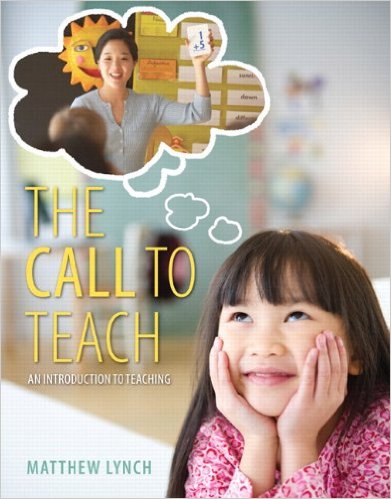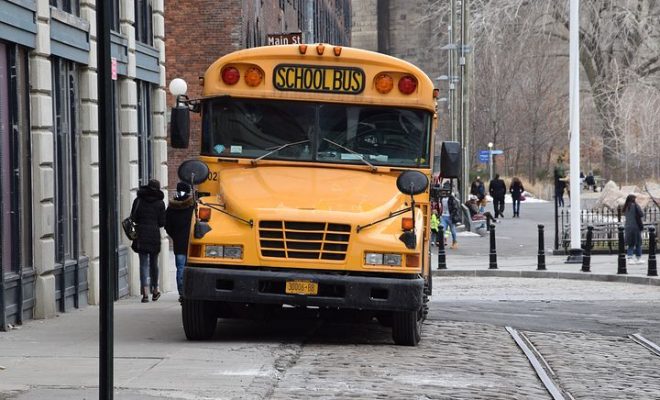Ineffective assessments, part IV: Greater focus on HOW to obtain knowledge

By Matthew Lynch
Click here to read all of the articles in our Ineffective Assessments series.
In this vast digital age, there is more information available than can ever possibly be processed, and the way that students vet this data is incredibly important. While the internet has opened up the world in amazing and beautiful ways, it has also skewed the way information is obtained. Instant knowledge, or perceived knowledge, is available as soon as kids are old enough to type in a computer password or swipe the lock screen of a tablet or smartphone. The internet has eliminated the information exploration process in many ways, with search engine providers racing to spoon feed people the exact answers they need with the fastest speed.
For those of us who grew up in the pre-internet days, the idea of simply Googling the answer for our homework is mind-boggling. If computers were used in classrooms pre-1995 or so, they had specific educational programs preloaded. There was no wandering from one website to the next, and even academic databases were clunky in nature and still took significant time to navigate. Half of the learning battle was to find the right information after digging through a lot of the wrong material first. The payoff, of course, was finding that perfect reference or piece of information that fit the assignment. The skills developed finding that nugget of knowledge were retained for the next search. Those of us who went on to college, and grad school and even pursued even more advanced degrees continued to implement those search-and-find tactics to reach our goals. We had built the foundation early in our K-12 learning careers and knew how to find and implement reliable knowledge.
Now fast forward to a baby born today. This child will likely be the star of an entire Facebook photo album before she is even one day old. Her milestone moments of early childhood will be plastered on the Facebook, Twitter and Instagram feeds of her doting parents and by the time she is a toddler, there will be at least a few smartphone or tablet apps that belong to her on her parents’ devices. Her life will be an open book in many respects, chronicled for her own parents’ posterity but also shared with a world of close friends and not-so-close acquaintances. By the time she starts Kindergarten, she will have spent thousands of hours staring at screens – whether they be the computer, tablet, television or otherwise. Technology won’t be exciting or new but will be a pretty mundane part of life.
There is no way to take away the technology experiences that kids have before they even enter our public K-12 classrooms, and we shouldn’t want to do that anyway. It does change the way this generation of K-12 students will approach the pursuit of knowledge though, and it is vastly different from previous ones. Perhaps just as important as the facts our students learn is making sure they are confident and correctly obtaining that knowledge. Assessments are one way to check up on this goal.
Assessments of the future will need to ask more questions about the how of knowledge and not just focus on the what. There is no longer one set of books that answer a particular set of questions, and even materials as traditional as U.S. history books are coming under scrutiny for being too one-dimensional.
These truths are perhaps most evident in Texas, where a battle wages on regarding the inclusion of alternative versions of American history textbooks in high schools. More than 50 organizations and a coalition of Hispanic-American educators in the state petitioned the Texas State Board of Education to allow alternative history as an elective for high school students. The petitioners were not asking to change the traditional textbooks, but merely to add more perspectives to the learning process for those who elected it. The petition was denied officially for cost concerns, but certain board members admitted that they feared the leftist ideals that could be infused into the textbooks that could disrupt the order of things when it came to learning about history in Texas classrooms.
Politics aside, the debate in Texas brings up some other interesting points as they relate to how exactly this generation of K-12 students obtains knowledge. Simply disallowing the alternative histories in classrooms does not cut off student access from them, it just directs them to unauthorized versions that can be created, and posted online, by anyone. This is true for any topic. Students have all of the information they will ever need at the tips of their fingers, and they will grow up never knowing what life was like pre-Internet. They don’t need to go to the library, or check a few sources before determining the true answer – they just need a smartphone. This presents a slippery slope for educators, who have been told to embrace the very technology that often misinforms their students. Not all free information, particularly online, is created equal. More than ever, educators need to show students how to find the answers on their own.
It is impossible to sort out the good, accurate websites from the bad ones, so students need to be able to think for themselves when it comes to misinformation and information overload. In other words, we need to be educating our learners about how to obtain the BEST knowledge from the pool of available options. This process of finding information should vary from school to school to adjust to the populations using it but should contain these features:
- An online vetting process. How can students know if what they are reading is reliable? This starts by considering the source through a short list of trustworthy websites and publications. Government publications, large trusted nonprofit names, and some newspapers should make this list. Since some editorial content is now going the way of paid content, otherwise known as native advertising, sites with interest in making money (including some “news” publications) should be examined with a close eye, too. As advertising online continues to evolve, so too should the way we examine the content we consume – and students should be a part of that process. Students should know how to spot unbiased, reliable information and separate from misleading content. That skill starts with vetting the source and looking for clues in the content that point to reliability, instead of simply taking what is presented at face value.
- Instruction in the basics. I’m not going to take this moment to bemoan the decline of brick-and-mortar library necessity. It is what it is. While needing the actual books on the shelves may be on its way out, the information housed in our school, university, and public libraries is still an incredibly important cornerstone of learning, particularly when students are searching for information. Our students should know what the difference is between a Wikipedia page online and a peer-reviewed article on the same topic. They should understand reference books and where to find the information contained within them, whether that is still a physical library shelf or a specific website. In other words, when our students are at the beginning stages of researching something they should not start with a Google search; they should go a little deeper to find the best sources on any topic and teachers should instruct them on how to do it.
- Investigating multiple sources. The instant gratification of the internet has provided a shortcut for today’s students when it comes to research and obtaining knowledge. Answers are quite literally right at the tips of their fingers and easy to insert in any assignment. Students should question what they read, however, even if the sources seem reliable. A benefit of the internet is that there is more than one side to every story, which means that today’s students should be handing in well-rounded work that contains more than one piece of info. Even the “facts” surrounding our Founding Fathers and other pieces of American history are scrutinized more closely, in part because of the vast reach of the internet, and students should be encouraged to seek out more than one avenue when it comes to the learning process and should use that information to formulate a well-rounded response to any assignment.
- An understanding of internet-related ethics. Today’s students do not need to write answers on the insides of their hands or pay another student to write their research papers to cheat academically. In many cases, all they need is a cell phone, a search engine and sometimes a credit card. With so much information available at the touch of a button, student understanding of what is cheating, what is shady and what is perfectly acceptable when it comes to finding answers is a little bit murky. A Common Sense Media survey discovered that at least 35 percent of the student had cheated on assignments via cell phone – though many of those respondents were unaware that what they had done was ethically questionable. Some ways that students cheat to find their answers include texting answers to other students, storing notes on their cell phones, rewriting information found online that requires no further research, using virtual assistant programs to find answers and flat-out paying online companies to write papers or complete assignments for them. In a lot of cases, it may not even occur to the students that they are doing anything unethical. To them, they are just finding the answers to the questions presented in the most efficient way. This reliance on the quickest, most accessible information is dangerous to the academic futures of K-12 students though, and educators should fight against it through policy, discussion and yes, assessments. This requires, in essence, students unlearning the information gathering tactics that they have built in from birth.
But then how do we assess this information gathering process? It is one thing for teachers to align their lesson plans with these methods, but it is another thing to be able to tell which students have mastered them. I would suggest a separate assessment that focuses solely on the process of information seeking – whether it is in included in assessments that are already written, or given as a test at certain benchmarks in the K-12 career. As it stands now, 4th and 8th grade seem to be popular time frames for other assessments, but I’d suggest mid-way through the elementary career (say 3rd grade) and then again at the end (6th). Then again after 9th grade and in the second semester of 12th. The very best way to test these skill sets is by having individually written tests per school, per district, or at the very least per state. These tests should not be sent off to a large-scale scoring publisher but should be graded individually by each teacher. Adding another requirement to a teacher’s agenda may come with its set of groans, but I’d argue that these information skills are so integral to creating lifelong learners who can think for themselves that this needs to be part of the assessment process.
Instead of an actual “test,” these skills could also be assessed in the way of a class project. Research papers and other long-term projects are certainly not new to a teacher’s agenda, but the “assessment” side of this information gathering would have specific requirements for the intended outcomes, listed above. Guiding the way our students obtain knowledge will impact every other fact or piece of knowledge and needs to be a required piece of K-12 learning – and then tested.






